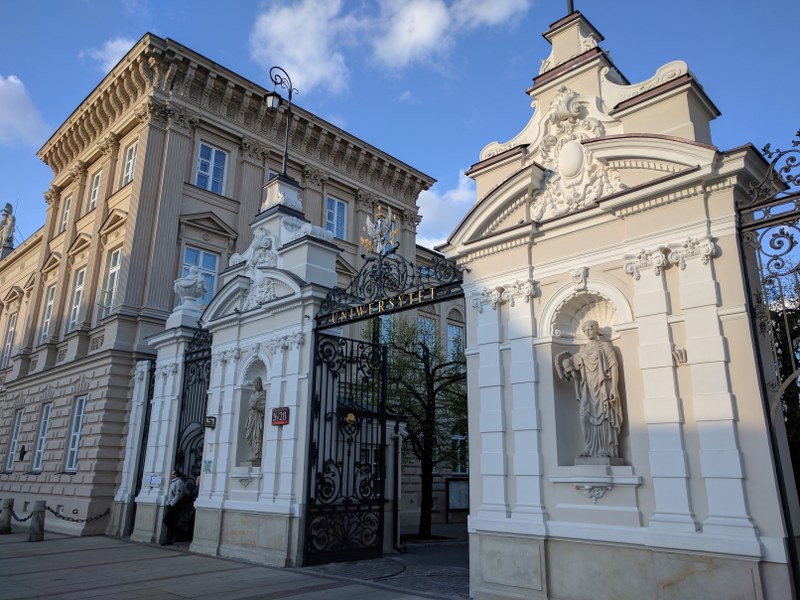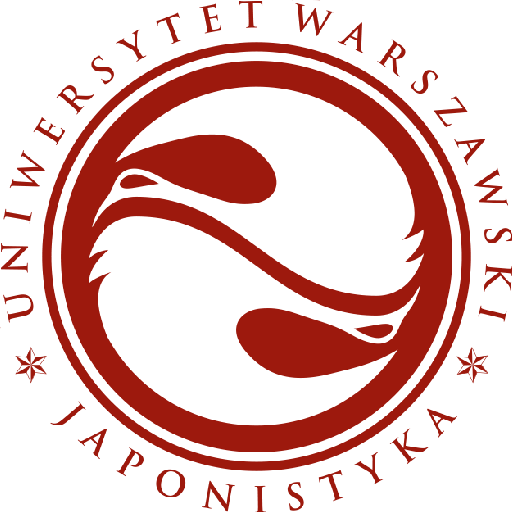
The beginnings of Japanese studies in Warsaw, and thus in Poland, date back to 1919, when, after Poland regained independence, Bogdan Richter (1891-1980), a graduate of oriental studies in Leipzig, began classes as part of a Japanese language course at the University of Warsaw. In 1922, he founded the Department of Far Eastern Culture at the Faculty of Philosophy of the University of Warsaw, where he also taught Japanese studies. Richter published several works on Japanese literature and is also the author of translations. His students included Kamil Seyfried (1908-1982) and Antoni Ślósarczyk (1899-1985). After his studies, Seyfried became a translator of Japanese literature and a compiler of Japanese Polonica. As a professional soldier, Ślósarczyk was particularly interested in the history of the Japanese military, on which he wrote several works. In the years 1926-1928, Japanese language was taught at the University of Warsaw by the first and only Japanese native speaker during the interwar period, Umeda Ryōchū Stanisław (1900-1961), a great enthusiast of Poland. After the war, he would become a specialist in Slavic literature, including Polish, and also its translator.
In the academic year 1933/1934, thanks to a grant from Baron Mitsui Takaharu (1900-1983), who visited Poland with his wife in June 1933, a sinological seminar was opened at the Institute of Oriental Studies at the University of Warsaw. Jan Jaworski (1903-1945) became its director, and he was later replaced by Witold Jabłoński (1901-1957). The establishment of the sinological seminar marked the beginning of regular classes on Japanese culture. Jaworski and Jabłoński, later professors, were primarily sinologists, but they taught and published on Japan. Both conducted secret teaching during World War II. The students of both professors included, above all, Professor Wiesław Kotański, as well as Bolesław Szcześniak (1908-1996), who after the war was a professor at the University of Notre Dame in the United States.
Professor Kotański (1915-2005) is the undisputed founder of Japanese studies in Warsaw, and in Poland. He was the educator of several generations of Japanese studies students, an outstanding linguist, religious studies scholar, and above all a tireless researcher of the sources of Japanese culture. His most important achievements include the groundbreaking translation and interpretation of the 8th-century Kojiki chronicle (Kojiki, czyli Księga dawnych wydarzeń [Kojiki, or the Book of Ancient Records]; 1986). Shortly after the war, he began his professional, scientific and teaching career at the University of Warsaw. It was thanks to him that the Chair of Sinology first established a specialization in Japanese studies in 1952, and then an independent major in Japanese studies in 1957, which operated as the Department of Japanese Studies at the Chair of Sinology, and then as a section in the Department of the Far East (1975-1990) and later at the Department of Japanese and Korean Studies (1990-2015). In 2015, an independent Chair of Japanese Studies was established.

The co-founders of post-war Japanese studies were also Prof. Jolanta Tubielewicz (1932-2003), who researched the history of Japan, mainly the oldest history, the literary scholar and translator of Japanese literature Prof. Mikołaj Melanowicz, and Dr. Krystyna Okazaki (1942-2008), a scholar in Japanese culture and a translator.
Currently, the continuous development of Japanese studies at the University of Warsaw is ensured by its employees – researchers and teachers. Japanese studies concern the broadly understood culture and language of Japan. They are divided into several specializations: literature, history, language, philosophy and religions, aesthetics, performing arts. The basis of the research is the language, the study of which dominates the first two years of first-cycle studies.
The first native speaker to teach Japanese after the war (1960-1967) was Yonekawa Kazuo (1929-1982), a literary scholar and translator of Polish literature. We were very lucky that many of the lecturers of Japanese were outstanding literary scholars and outstanding translators. These include: Kudō Yukio (1925-2008; lecturing in the years 1967-1974), Yoshigami Shōzō (1926-1996; in the years 1981-1983), Sekiguchi Tokimasa (in the years 1986-1987), Numano Mitsuyoshi (in the years 1987-1988), Nishi Naruhiko (in the years 1988-1989). Prof. Yoshigami was also active in deepening scientific cooperation between Japan and Poland, and it is to him that we owe the first bilateral agreement in Japanese studies – with the most prestigious University of Tokyo (1974). His successor in this role was Prof. Numano. Regardless of the lecturers coming from Japan, in 1973 Okazaki Tsuneo started working at the Department of Japanese Studies, and has been teaching Japanese until 2023. As an experienced teacher, he was the coordinator of the Japanese studies language block.
The most outstanding students and graduates can apply for academic scholarships in Japan, primarily thanks to several bilateral agreements with Japanese universities.
The Japanese authorities have repeatedly given evidence of recognition for Japanese studies at the University of Warsaw, for its merits in researching and popularizing Japanese culture in Poland. This is evidenced by two prestigious awards: the Japan Foundation Award (2002) and the diploma of the Minister of Foreign Affairs of Japan (2009), as well as membership in the Sakura Network (2015). The greatest distinction were the visits of Their Imperial Majesties, Emperor Akihito and Empress Michiko (2002) and Their Imperial Highnesses Crown Prince Akishino and Crown Princess Kiko (2019).
We have been repeatedly endowed with valuable gifts (books, library and lecture hall equipment, audio devices), both by Japanese institutions – state and private – as well as by private individuals. The most important one is The Japan Foundation. Two foundations operate at the Chair of Japanese Studies, which support Japanese studies and promote Japanese culture in Poland. The Polish Association of Japanese Studies was established in 1991 on the initiative of Japanese scholars, thanks to donations from many Japanese people. The Takashima Foundation has been actively operating since 1993, thanks to the generous financial support of Takashima Kōichi (1922-2000), president of Kyōei Steel Ltd. and honorary consul general of the Republic of Poland in Osaka (1996-2000).
Ewa Pałasz-Rutkowska
